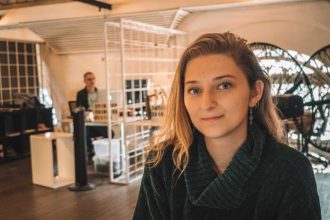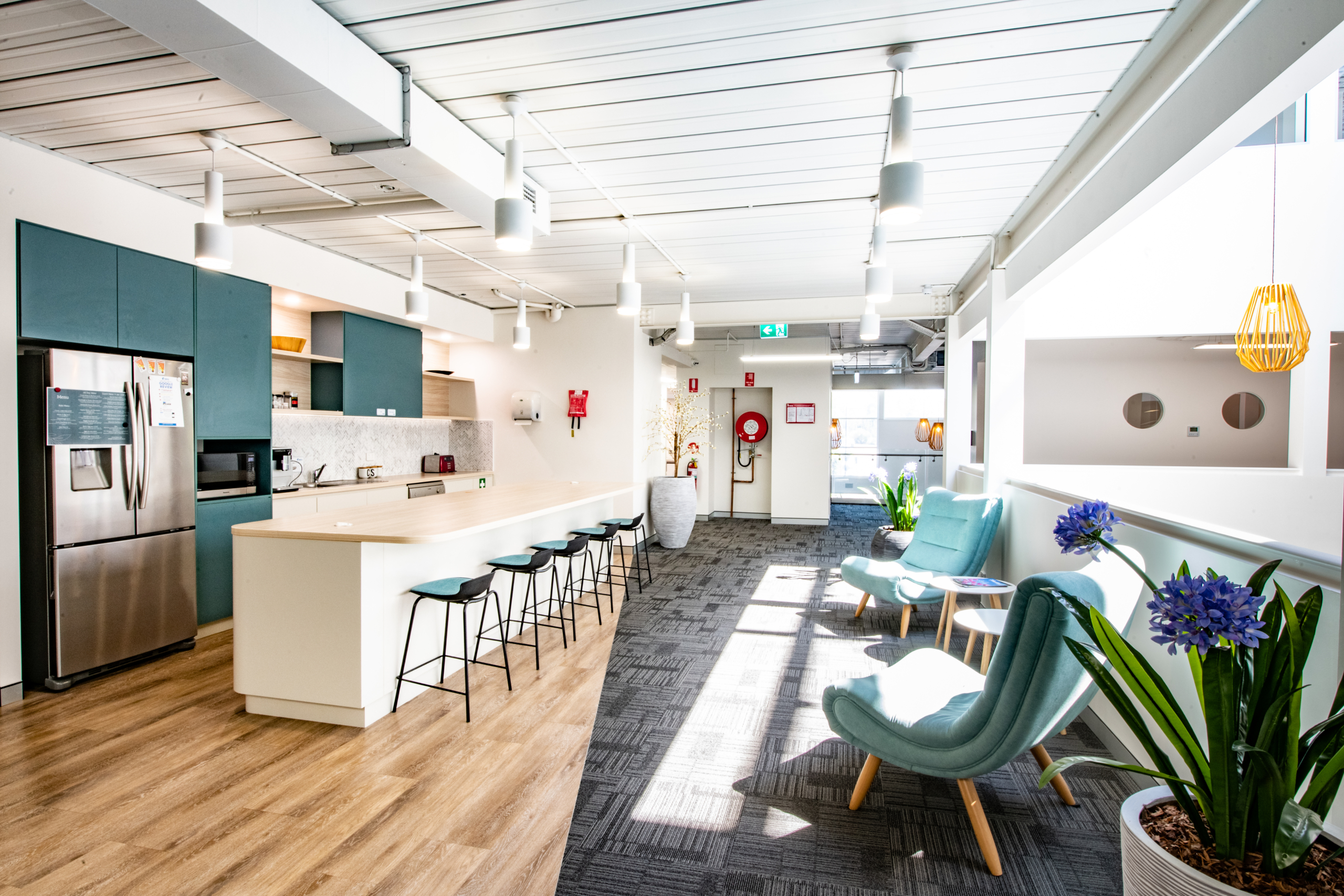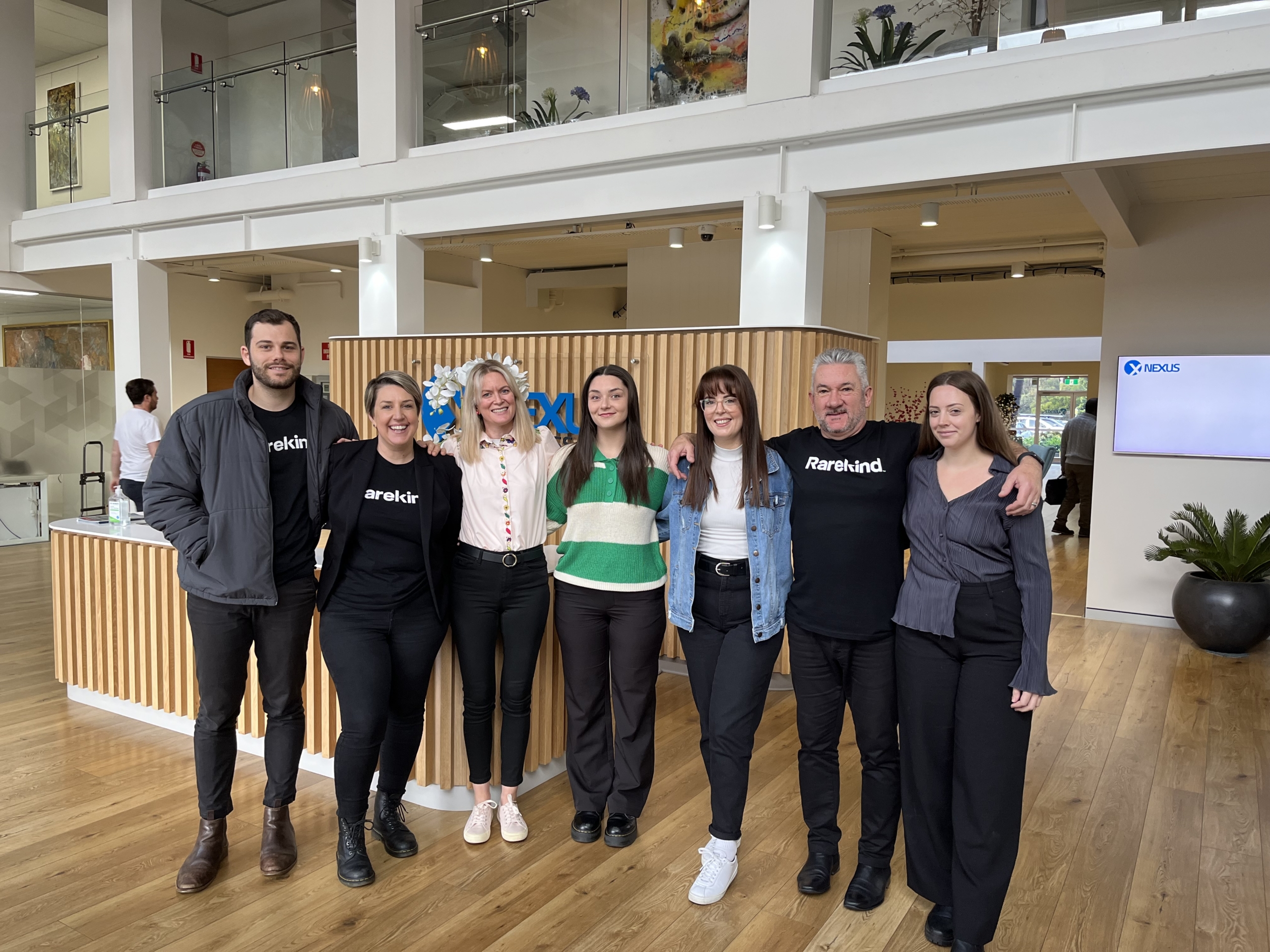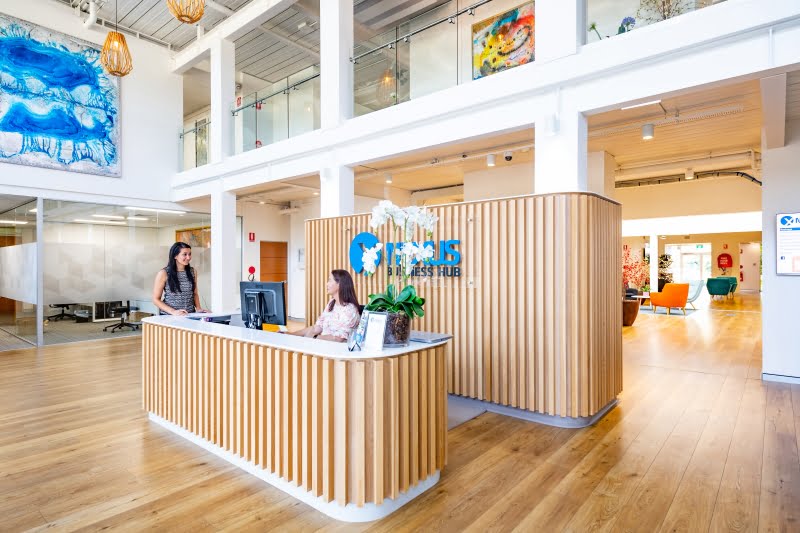Key points:
- Virtual office spaces are a growing trend that allow small businesses to lease a professional business address outside their home, for correspondence and meeting spaces, without having to set up their own premises
- High overheads in fixed-office spaces can be avoided with the virtual model
- Co-working spaces are also seen as way of building community
New co-working spaces are opening across regional WA, following the global trend towards more flexible work arrangements, albeit some years behind the metropolitan trend.
These spaces gave certain types of workers, such as freelancers, the opportunity to go to work at an actual office in a building, instead of from working from home, and share that space with others.
Now, a co-working space in Bunbury, Western Australia, has started leasing “virtual office space” — a step above a PO Box. Maker & Co’s Business and Trade Director Craig Holland said virtual offices were the co-working space’s latest offering to fill a demand. “A virtual office is an address that you sign up to that is separate from your home address,” Mr Holland said.
“When you’re undertaking small business as a sole trader or a start up where you just want that separation between your home and the address of your business.”
What is a virtual office space?
A virtual office allows the lessee to use the address of the co-working space for their official business documents and mail.
It also provides the opportunity to use meeting rooms in the co-working office building and attend networking events.
“Worldwide there’s a trend for people to look at work opportunities outside of the normal going-in and being an employee,” Mr Holland said.”People will often do that from home, sometimes they’ll come into co-working spaces and other spaces where they can dip their toe in the water of that business world.
“So having a virtual office is the ability to have a central location as your business address and that’s where you’re registered, that’s where people perceive the business is operating from, it gives that professional underline to your business.”
Digital marketer Paul Ramondo, 28, has worked out of a co-working space on St Georges Terrace in the Perth CBD for the past nine months.
He had rented traditional office spaces for several years, but after working from a number of co-working spaces during working holidays around the world, he decided to pack up his fixed office.
“I was no longer interested in having a fiscal obligation and legal obligation to pay about $24,000 worth of rent expense every single year,” he said. “My overheads were higher which meant, especially in a start-up phase, I wasn’t as nimble as what I wanted to be.
“My decisions for the business were dictated by that overhead expense as well as me being locked to a specific physical location.”
Mr Ramondo said he much preferred the co-working office model than his former private office.
“I loved my office but it was very isolated in terms of networking opportunities,” he said.
He said co-working spaces allowed him to “serendipitously make a new connection by sharing a space with someone”.
Providing a community
Meshpoints is a support service for co-working spaces in regional WA which was born in Geraldton at the Pollinators space, which was at the forefront of the trend in WA.
Meshpoints Lead Katie Van Den Brand said virtual offices were just another service that co-working spaces could offer.
“You might not actually be a co-worker, but you may become a member so you receive a couple of hours a month of meeting space so you can have your mail sent there,” Ms Van Den Brand said.
“I think for a lot of people in the regions that start up small businesses and maybe home base businesses which is great because it’s lovely and low risk in terms of overheads. A co-working space can then provide that bridge.” “So they’re a really integral part in the regions.”
Ms Van Den Brand said it was not just about providing an office space so the growth of co-working spaces in regional areas differed from the growth in cities.
“We’re actually providing a community and that community will grow depending on the people within that community and that’s why it will look so different from town to town,” she said.
“There will be growth — it’s early days though and I think we’ll see a tipping point in that growth when a couple more of the regions have got the level of activity such as the Mid West and the South West and I think you’ll see Great Southern come on in a couple of years and really push forward in this space which will see some growth there but then wider trends across regional WA are going to take 3–5 years to actually start kicking on I think.”
NexusHub is the new way to live and work on the Central Coast. We offer state-of-the-art workspaces at an affordable price. To find out more about how our spaces can help you collaborate, innovate, and network, explore our website or contact us for a discussion today.








